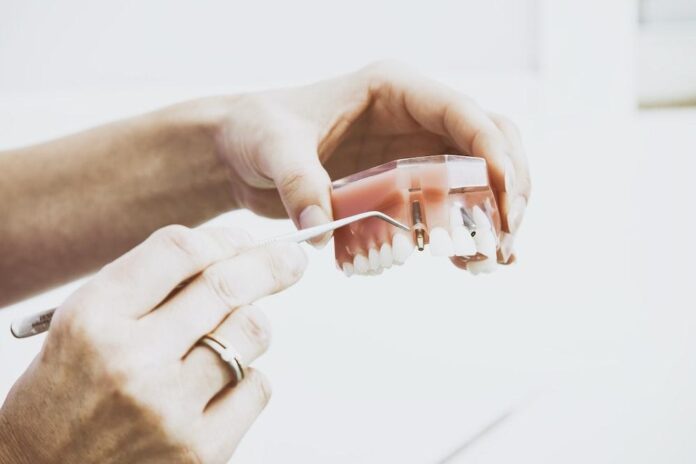Dental implants are a popular and effective way to replace missing teeth. Unlike dentures, which can slip and be uncomfortable, implants are securely anchored to the jawbone. They also look and function just like natural teeth, making them an ideal solution for people who want to restore their smile.
In addition, implants are designed to last a lifetime, making them a more cost-effective option in the long run. For all these reasons, dental implants are an attractive option for people who are missing one or more teeth due to damage or disease!
Defining Dental Implants
Dental implants are a serious medical procedure that should only be considered after careful consultation with a qualified dental professional.
Step 1: Implant
The first step is to have the implant placed in the jawbone. This is done under local anesthesia and usually takes less than an hour. Once the implant is in place, it will take a few months for it to fuse to the bone. During this time, patients should avoid putting too much pressure on the implant to allow for proper healing.
Step 2: Abutment
Once the implant has fused to the bone, the next step is to place the abutment. This is a small connector piece that attaches the implant to the artificial tooth. The abutment placement is also done under local anesthesia and takes about an hour.
Step 3: Artificial Tooth
Finally, the artificial tooth is placed on top of the abutment. The entire process usually takes about three months from start to finish. And while there is some downtime associated with each stage of the procedure, most patients report minimal discomfort and a quick recovery time.
The Road to Recovery
The thought of having surgery can be daunting, but dental implants boast a relatively quick recovery time. However, there still remains a risk of infection and other complications associated with any surgery.
As a result, patients considering dental implants should be sure to consult with a qualified dentist to discuss all risks and benefits before making a decision. And most importantly, carefully follow the guidance your professional gives you throughout the healing process and beyond!
With that in mind, here’s what most patients can typically expect when recovering from a recent dental implant procedure.
Medication
When you get dental implants, you can expect some downtime to allow for healing. During this time, you may experience some discomfort and soreness as your jawbone has recently been drilled into. To help manage this, your dentist may prescribe pain medication.
It is important to follow your dentist’s instructions when taking any medication, and be sure to ask about any possible interactions with other medications you are taking. In general, it is safe to take pain medication after dental implants, as long as you do not exceed the recommended dosage. Taking pain medication as directed can help you to recover quickly and comfortably from your smile altering procedure.
Diet
After having a dental implant, it’s important to take care of your mouth as it heals. This means eating softer foods that won’t irritate the implant site. In the first few days, stick to yogurt, soup, mashed potatoes, and other soft foods! Perhaps most important, avoid the consumption of alcohol and tobacco as consuming these substances can cause serious adverse effects!
As the implant site starts to feel less sore, you can add in harder foods like steak and crunchy vegetables. It’s still important to be careful with chewing, though, so cut your food into smaller pieces and take your time while eating. Once the implant site is fully healed, you can enjoy all your favorite foods again. Just be sure to brush and floss regularly to keep your implant clean and healthy!
Rest
It’s essential that you get plenty of rest after having a dental implant. Sleep will help your body to speed up the healing process. During this time, it’s important to go easy on your new implant. Limit your physical activities and take it easy for a few days after the surgery. This will give your implant the best chance to heal properly, and also includes some unlikely advice like don’t blow your nose too hard- as it can hinder your recovery process.
Communicate
One of the most important things you can do after getting a dental implant is to communicate with your dental professional. Be sure to reach out if you’re experiencing any pain or other complications. It’s also important to visit your dentist for regular checkups and to monitor the condition of your implant afterwards- it’s crucial to commit to follow up appointments in between the implant procedure.
By staying in communication with your dentist, you can help ensure that your implant is successful and that you’re able to enjoy a healthy, happy, and completely transformed new smile! If you do not have a dentist yet and you’re looking at getting dental implants, you can check out this expert that does implants, dental bondings and fillings in Harrisburg.











